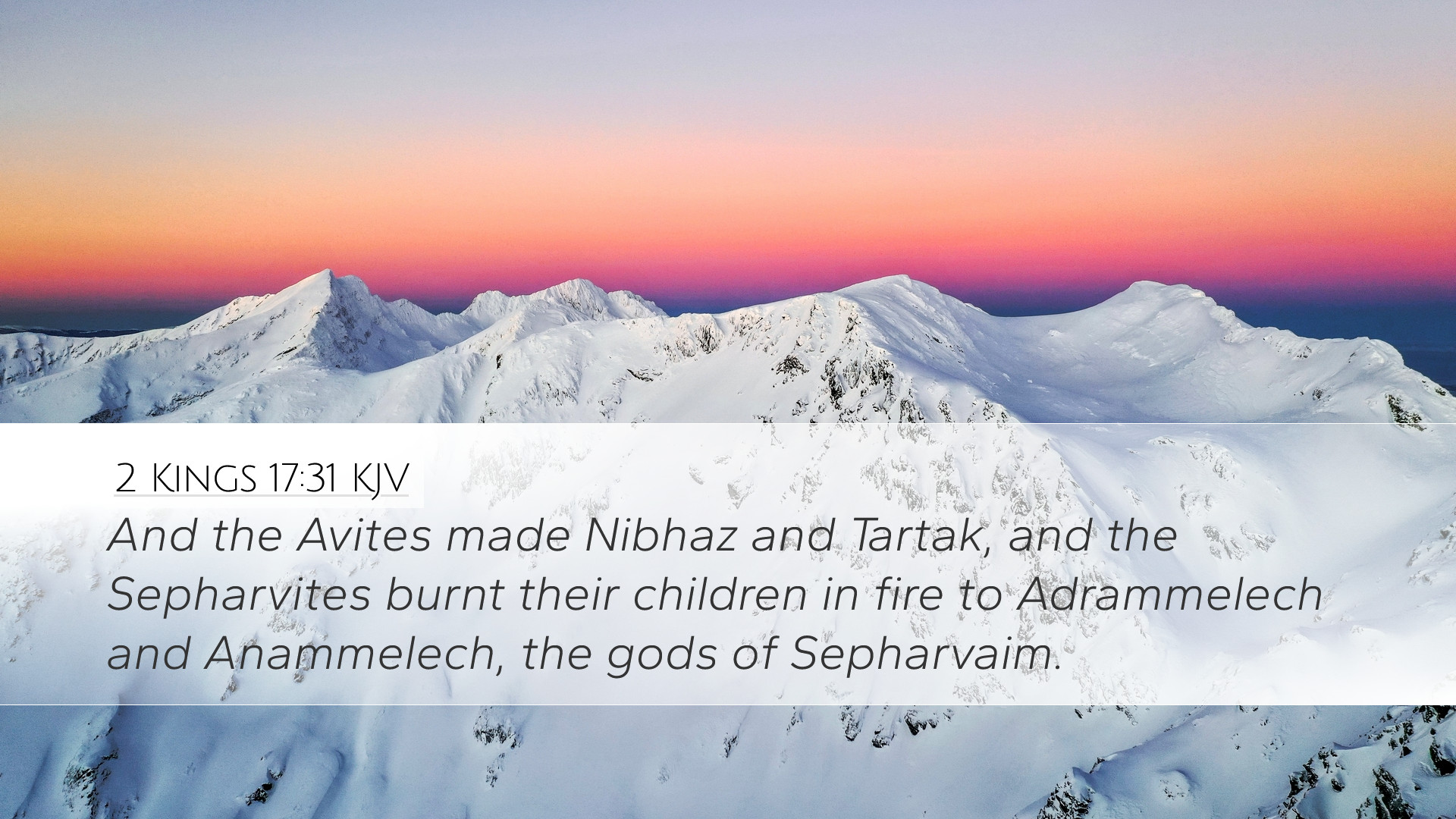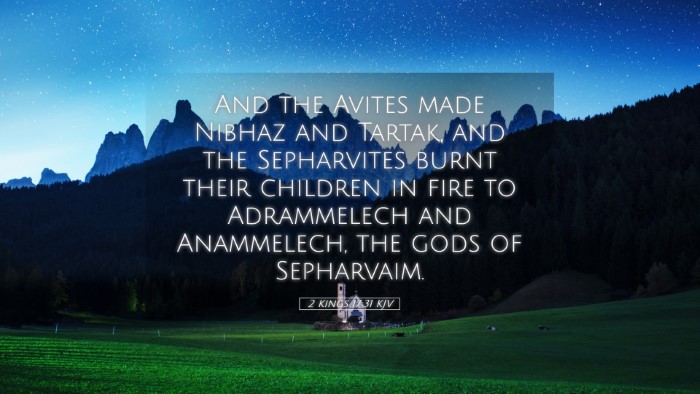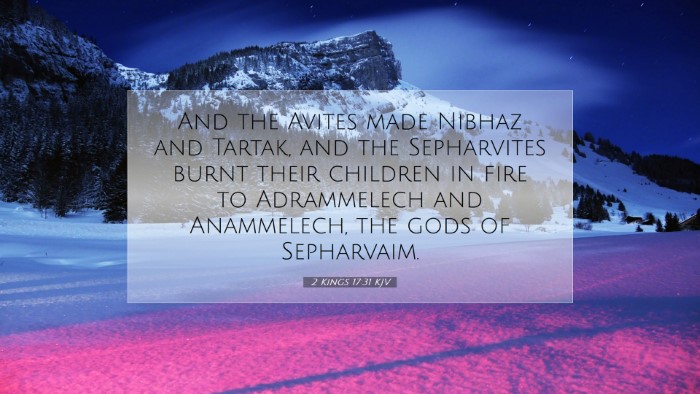Analysis of 2 Kings 17:31
Bible Verse: "And the Avites made Nibhaz and Tartak; and the Sepharvites burnt their children in fire to Adrammelech and Anammelech, the gods of Sepharvaim."
Introduction
This verse provides a sobering insight into the religious practices of the people who intermingled with the Israelites and illustrates the syncretism that marked the spiritual landscape of Israel during the time of the kings. Various public domain commentaries offer enlightening perspectives to glean significant theological lessons and historical context.
Historical Context
The passage comes from a time of significant upheaval and transition in Israel. The Assyrian captivity had begun, and various peoples and cultures were being resettled in the land, leading to a blend of pagan practices. Understanding the context of the Avites, Sepharvites, and the corresponding gods mentioned enhances our comprehension of the spiritual degradation taking place.
Divine Judgment and Exile
Matthew Henry's Commentary: Emphasizes that the verse reflects the fulfillment of God’s warnings through the prophets. The Israelites were warned against idolatry, and their failure to heed those warnings resulted in their being overtaken by these pagan nations, highlighting God's judgment on their unfaithfulness.
Idolatry of the Nations
Albert Barnes elaborates: The reference to Nibhaz and Tartak indicates that the peoples transplanted in Israel followed their native deities. The ritual of child sacrifice to Adrammelech and Anammelech represents the depths of idolatry and the depravity of the nations surrounding Israel. Barnes suggests that these practices were appalling to the Israelites and underscored the spiritual darkness of the time.
Theological Imperatives
Both historical insights and theological reflections from public commentators bring to light the importance of fidelity to God amidst cultural pressures.
Syncretism and Identity
Adam Clarke points out: The mixing of worship between Yahweh and pagan gods illustrates syncretism, which can weaken the distinctiveness necessary for true worship. The Israelites were not called to adopt the practices of their neighbors but to uphold the purity of worship toward their one true God.
Consequences of Idolatry
The mention of child sacrifice serves as a grave reminder of the moral and ethical implications of turning from God. Matthew Henry asserts: Such actions are the ultimate expression of a society's abandonment of God's commandments, leading to societal decay and divine disfavor.
Modern Applications
This verse is not simply a historical account but provides lessons for contemporary faith communities:
- Awareness of Cultural Influences: Like the ancient Israelites, modern believers face the challenge of maintaining their spiritual identity in a pluralistic society that may promote moral relativism.
- The Importance of Sound Teachings: Pastors and theologians have a responsibility to teach sound doctrine and warn congregants against the perils of abandoning the Scriptures for cultural relevance.
- Accountability and Leadership: Church leaders are called to hold up examples of godliness, rooted in steadfast faith in God, contrasting the practices of the world.
Conclusion
2 Kings 17:31 offers a vivid illustration of the challenges faced by a nation caught between fidelity to God and the allure of idolatry. The insights gleaned from public domain commentaries remind believers of the necessity to uphold their faith against cultural pressures and the dangers of syncretism. As both a cautionary tale and a call to faithfulness, this passage holds profound implications for spiritual leaders, scholars, and congregants alike.


